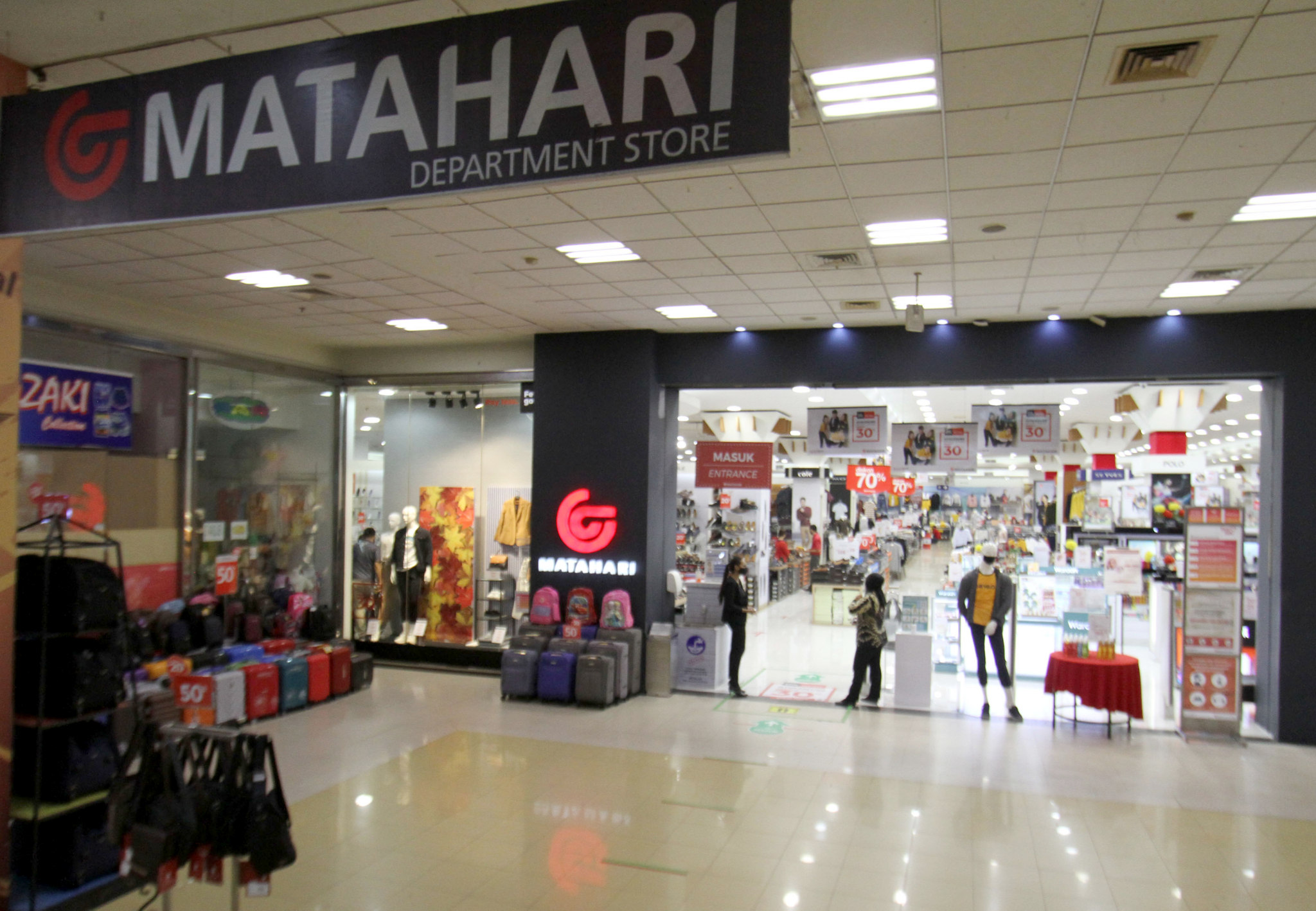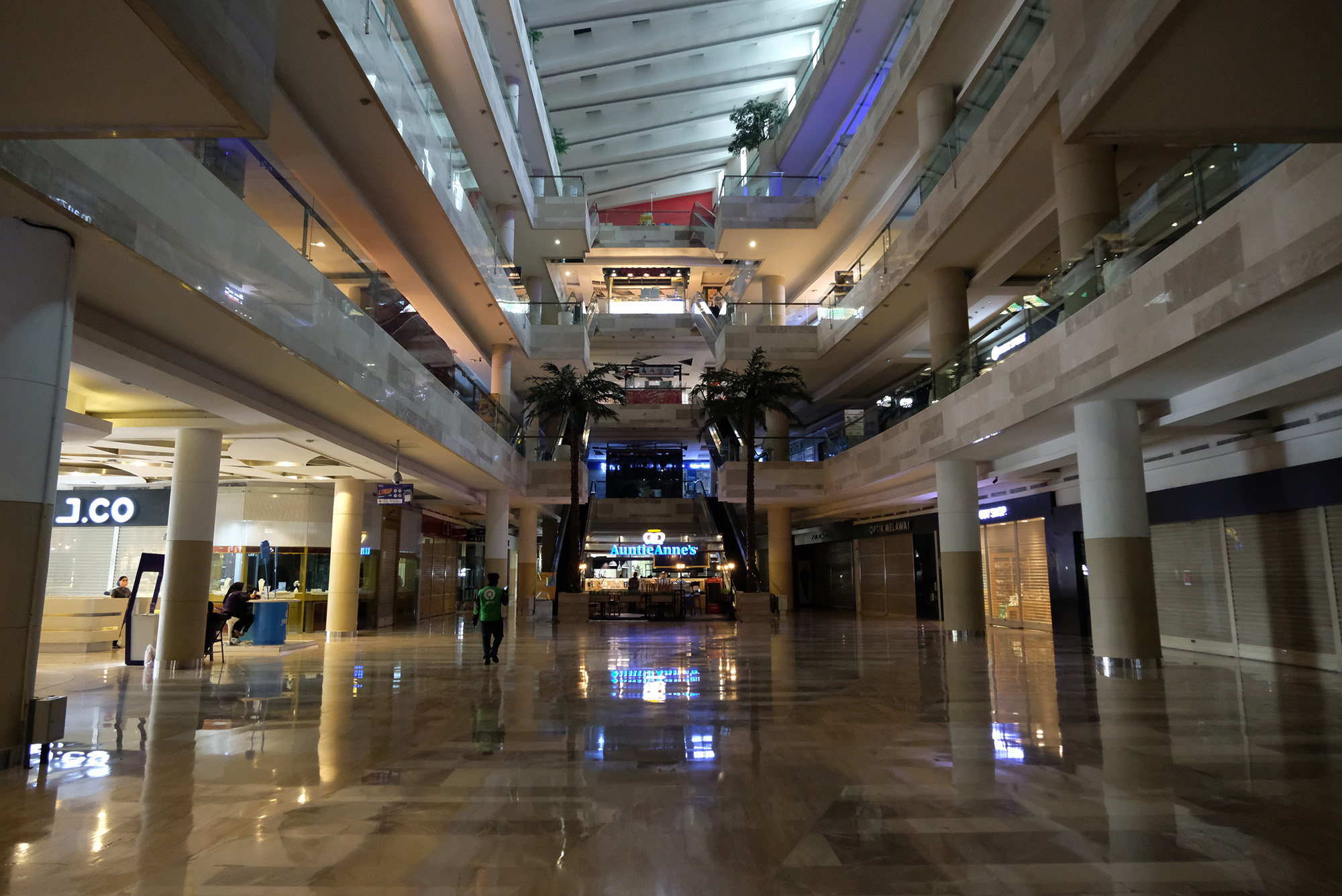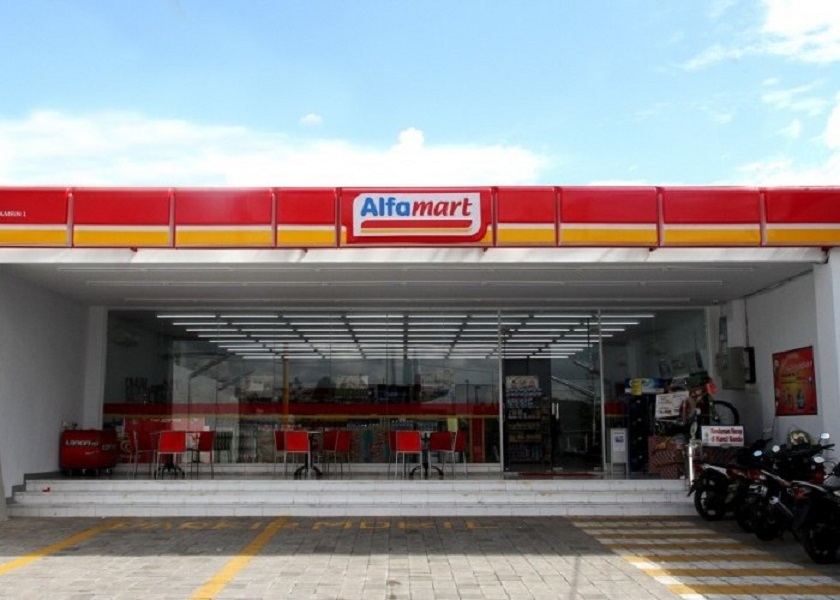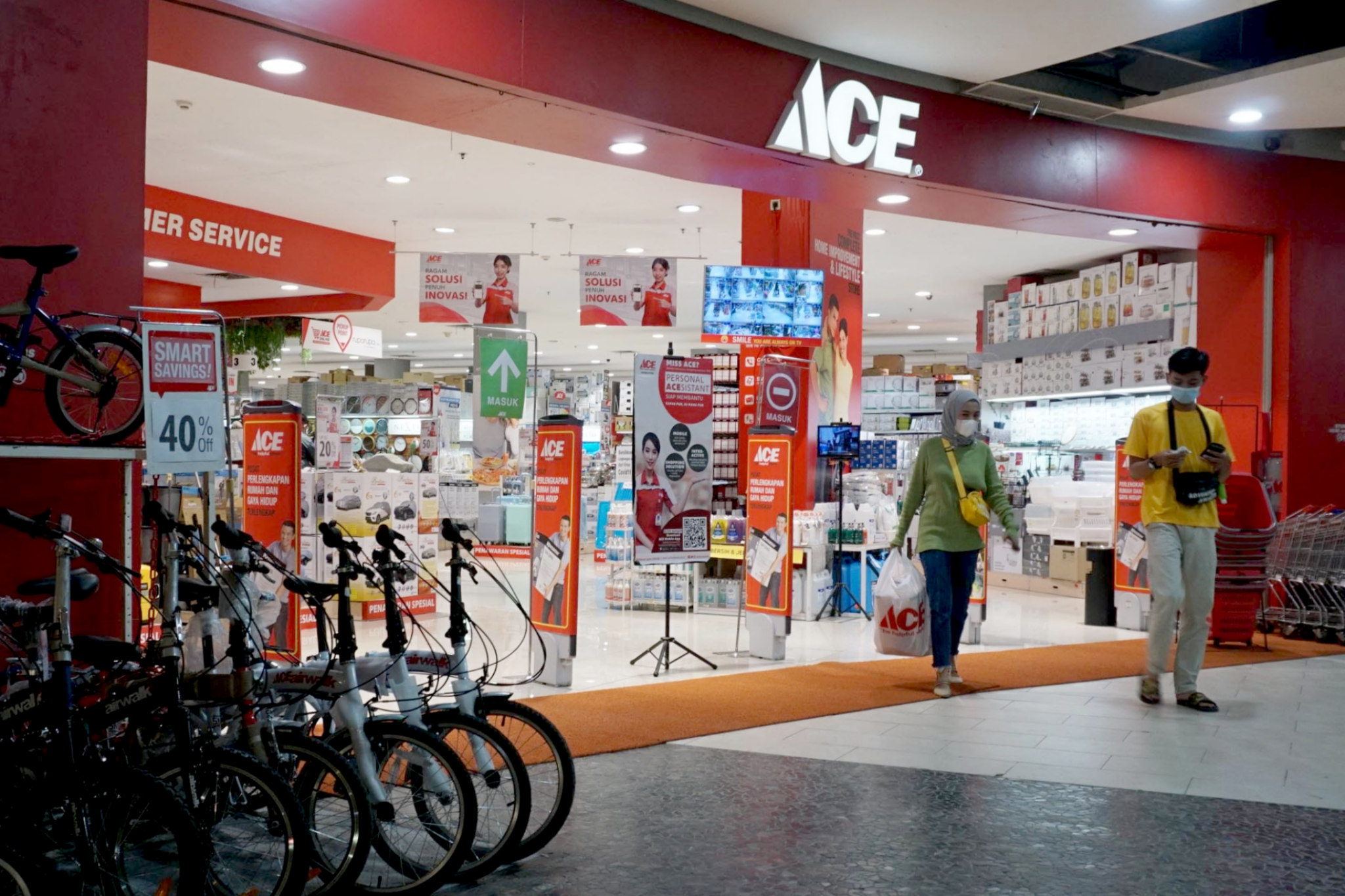
Retail Apocalypse (Serial 2): Indonesian Retail Issuers Implement Offline and Online Moves
JAKARTA – The presence of electronic commerce (e-commerce) sites had previously been the biggest threat to the sustainability of the modern retail business. Shopping from home is practically considered to exceed the old habit of shopping directly to the store. At first, the retail business had to survive the onslaught of marketplace sites in Indonesia. […]
Fintech
JAKARTA – The presence of electronic commerce (e-commerce) sites had previously been the biggest threat to the sustainability of the modern retail business. Shopping from home is practically considered to exceed the old habit of shopping directly to the store.
At first, the retail business had to survive the onslaught of marketplace sites in Indonesia. The need to see goods directly is one of the reasons why modern retail continues to shine.
Unfortunately, the COVID-19 pandemic has turned things around. Social restrictions make retail outlets limit their visitors. Several outlets even temporarily forced to close in April-May last year due to large-scale social restrictions (PSBB).
- 11 Bank Biayai Proyek Tol Serang-Panimbang Rp6 Triliun
- PTPP Hingga Mei 2021 Raih Kontrak Baru Rp6,7 Triliun
- Rilis Rapid Fire, MNC Studios Milik Hary Tanoe Gandeng Pengembang Game Korea
- Anies Baswedan Tunggu Titah Jokowi untuk Tarik Rem Darurat hingga Lockdown
- IPO Akhir Juni 2021, Era Graharealty Dapat Kode Saham IPAC
Chairman of the Indonesian Shopping Center Retailers and Tenants Association (Hippindo), Budihardjo Iduansjah, said large-format modern retail was most affected during the COVID-19 pandemic.
“The large format means the rent is big. If the number of visitors is limited and the income drops, paying the rent is already difficult,” he told TrenAsia.com, Wednesday, June 2, 2021.
Taking the example of hypermarket-format retail, Giant, owned by PT Hero Supermarket Tbk (HERO) which has been falling since 2020. This year, HERO plans to completely close Giant on July 31, 2021 with several outlets planned to be converted into other HERO business lines such as Ikea and Hero Supermarket.
Similar thing happened to PT Matahari Department Store Tbk (LPPF). The retail department store opened for the first time since 1958, has closed 25 of its outlets throughout 2020. Until May 2021, Matahari has closed 13 more outlets. Even so, Matahari, owned by the Lippo Group conglomerate Mochtar Riady, can still survive without rumors of a complete closure like Giant.
The pandemic as well as changes in consumer shopping trends have made retail businesses rack their brains. If previously e-commerce was considered a rival, now retailers are starting to look at e-commerce as a friend. Could it happen?
Retail goes digital, profit or loss?

Suasana gerai Matahari Departement Store Mal WTC, Serpong, Tangerang Selatan, Banten, Selasa, 20 Oktober 2020. Foto: Panji Asmoro/TrenAsia
Recently, PT Matahari Putra Prima Tbk (MPPA) or better known as the manager of Hypermart announced the results of its collaboration with the e-commerce site Tokopedia which has presented 95 virtual stores.
Director of Corporate Secretary & Public Affairs of MPPA, Danny Kojongian, said this collaboration began in December 2020 with 23 outlets in Greater Jakarta. As of May 2021, the number of stores has reached 82 and until now, it has reached 95 stores across Indonesia.
“With more than 100 million monthly active users (Tokopedia), (this collaboration) places MPPA as the largest retail company on the online platform in Indonesia,” Danny said in an official statement, Wednesday, June 2, 2021.
- 11 Bank Biayai Proyek Tol Serang-Panimbang Rp6 Triliun
- PTPP Hingga Mei 2021 Raih Kontrak Baru Rp6,7 Triliun
- Rilis Rapid Fire, MNC Studios Milik Hary Tanoe Gandeng Pengembang Game Korea
- Anies Baswedan Tunggu Titah Jokowi untuk Tarik Rem Darurat hingga Lockdown
- IPO Akhir Juni 2021, Era Graharealty Dapat Kode Saham IPAC
In addition, MPPA also strengthens its online-to-offline (O2O) businesses such as Hypermart Online and Chat & Shop. Now, there are 111 Hypermart Online stores and 128 Chat & Shop stores. O2O itself means that buyers buy online but still visit physical outlets (offline) to pick up the goods.
Meanwhile, PT Mitra Adi Perkasa Tbk (MAPI), which primarily operates in the clothing segment, has reorganized its business by introducing the concept of unified retail. This concept means MAPI will integrate their online and offline sales.
During this pandemic, MAPI continues to boost online sales through its own platforms such as Mapemall and Mono-brand. In addition, MAPI is also present on marketplace sites as well as O2O Chat & Buy services.
MAPI digital sales are also supported by the MAP Club membership program. Like other retail memberships, MAP Club provides promotions and points that can be used to shop at MAPI outlets.
“During the first quarter, the company’s MAP Club loyalty program platform managed to increase its membership by almost 25% yoy (year-on-year),” said Ratih D. Gianda, VP Investor Relations, Corporate Communications, and Sustainability of MAP Group.
MAPI’s various efforts to increase digital sales have also paid off. In the first quarter of 2021, online sales managed to increase 300% compared to last year. This also makes the contribution of online sales to total sales to 10.9%.
- 11 Bank Biayai Proyek Tol Serang-Panimbang Rp6 Triliun
- PTPP Hingga Mei 2021 Raih Kontrak Baru Rp6,7 Triliun
- Rilis Rapid Fire, MNC Studios Milik Hary Tanoe Gandeng Pengembang Game Korea
- Anies Baswedan Tunggu Titah Jokowi untuk Tarik Rem Darurat hingga Lockdown
- IPO Akhir Juni 2021, Era Graharealty Dapat Kode Saham IPAC
On the other hand, PT Supra Boga Lestari Tbk (RANC) which manages the Ranch Market and Farmers Market supermarkets strives for offline and online formats to grow and support each other.
“So that we don’t sacrifice each other, increase the offline format at the expense of online, or enlarge the online format at the expense of offline,” said Director of RANC, Hady Purnama, in a recent public presentation.
Hady said that the contribution of RANC’s digital channel is still below 1% of the company’s total revenue. Even so, RANC remains committed to developing this channel in the future.
“In the end, customers need an online format for easy shopping and an offline format for the experience,” he added.
Although starting to realize the importance of digital channels, RANC still prioritizes store openings as a company strategy. This is because supermarket outlets are not just shops but also RANC’s logistics center for market share around the location.
Digital sales are still not significant

Suasana lengang akibat tenant yang tutup di area salah satu pusat perbelanjaan di kawasan Pejaten, Jakarta, Jum’at (10/4/2020). Penerapan Pembatasan Sosial Berskala Besar membuat sejumlah pusat perbelanjaan kembali memperpanjang masa penutupan sampai 19 April sebagai upaya mencegah penyebaran wabah COVID-19. Foto: Ismail Pohan/TrenAsia
The Chairman of Hippindo, Budihardjo Iduansjah, actually admitted that he was sceptical about the entry of offline retail players into the digital market. According to him, the entry of retail into the digital market only increases turnover to cope with the closed stores due to the pandemic.
“In terms of turnover, it is still bigger offline. This digital market (revenue) is at least 10% of the company’s total turnover,” he said.
What Budihardjo said was correct. Of the many large retailers who go offline and then go online, the number of retailers whose online income reaches 10% is very little. MAPI became one of them that managed to record a digital revenue contribution of 10.9%, and that was only achieved in the first quarter of 2021.
- 11 Bank Biayai Proyek Tol Serang-Panimbang Rp6 Triliun
- PTPP Hingga Mei 2021 Raih Kontrak Baru Rp6,7 Triliun
- Rilis Rapid Fire, MNC Studios Milik Hary Tanoe Gandeng Pengembang Game Korea
- Anies Baswedan Tunggu Titah Jokowi untuk Tarik Rem Darurat hingga Lockdown
- IPO Akhir Juni 2021, Era Graharealty Dapat Kode Saham IPAC
There is also an example of an e-commerce site made by the Lippo Group that failed and stopped operating in 2018, namely MatahariMall.com. Previously, MatahariMall.com was independent with an independent limited company.
At that time, conglomerate Mochtar Riady had disbursed up to US$500 million equivalent to Rp6 trillion to establish Mataharimall.com. He gave up at last. MatahariMall.com was merged with Matahari.com which is managed by PT Matahari Department Store Tbk (LPPF).
Even so, this view of whether or not offline retailers are going online is considered premature at this time. A pandemic that changes many things including consumer shopping trends can be a determinant of whether a retailer can survive. Retailers of course need to prepare the right strategy to grab this dynamic market.
Offline business stays viable

Ritel Alfamart milik PT Sumber Alfaria Trijaya Tbk (AMRT) / Alfamart.co.id
On the other hand, the retail issuer belonging to the conglomerate Djoko Susanto, PT Sumber Alfaria Trijaya Tbk (AMRT), the manager of the Alfamart minimarket, remains confident in its strategy of continuing to expand to various regions across Indonesia. In 2021, AMRT plans to continue to add more outlets outside Java.
Going full force, AMRT has prepared a capital expenditure (capex) of up to Rp3 trillion this year. One of the uses of the capex will be used for the opening of new outlets.
“The capex that has been absorbed during first quarter of 2021 is around Rp700 billion. The opening of outlets in the first quarter is approximately 250-260 stores,” said AMRT Finance Director and Corporate Secretary Tomin Widian in a public presentation.
- 11 Bank Biayai Proyek Tol Serang-Panimbang Rp6 Triliun
- PTPP Hingga Mei 2021 Raih Kontrak Baru Rp6,7 Triliun
- Rilis Rapid Fire, MNC Studios Milik Hary Tanoe Gandeng Pengembang Game Korea
- Anies Baswedan Tunggu Titah Jokowi untuk Tarik Rem Darurat hingga Lockdown
- IPO Akhir Juni 2021, Era Graharealty Dapat Kode Saham IPAC
At the end of 2020, the distribution of Alfamart outlets was still centered on the island of Java. A total of 37% of outlets are located in non-Jabodetabek Java and another 32% in the Jabodetabek area.
AMRT’s management has started to focus on opening stores in areas outside Java since the last five years. As a result, AMRT noted that store openings outside Java could slightly increase to 30.7% in 2020 from 29.7% in 2019.
Cellular phone and electronics retailer, PT Erajaya Swasembada Tbk (ERAA), has the same strategy as AMRT, which is to open as many stores as possible. This year, ERAA plans to open more than 300 new outlets.
“Most of our capex usage is for opening new outlets. We are targeting around 260 to 300 stores that we will develop,” Vice President Director Joy Wahyudi said in a public presentation at the end of May.
Until the first quarter of 2021, ERAA has opened 36 new outlets throughout Indonesia. Meanwhile, the absorption of capital expenditure has reached Rp37 billion in the first three months.
Last year, ERAA managed to open 135 new outlets despite the pandemic. In detail, 32 new outlets opened in the first quarter, 42 in the second quarter, 29 in the third quarter, and 32 in the fourth quarter.
Erafone, one of the stores under Erajaya, also introduced the Erafone Cloud Retail Partner concept. This concept allows individual investors to open Erafone stores on their own initiative. Thanks to this concept, four Erafone stores have been opened, one in Cilacap, two in Malang, and another in Yogyakarta.

Pengunjung melintas di gerai Ace Hardware dan Ace Express di kawasan Kota Tangerang Banten. Foto: Panji Asmoro/TrenAsia
Although not as many as the number of new AMRT and ERAA outlets, PT Ace Hardware Tbk (ACES) also plans to expand by opening 10 new outlets this year. For this plan, the company owned by the conglomerate Kuncoro Wibowo has prepared a capex of Rp150 billion.
This number is actually smaller than last year. This household appliance and furniture retailer managed to open 14 new outlets with a total area of approximately 39,100 square meters (m2) and closed 3 outlets (7,100 m2) due to relocation.
- 11 Bank Biayai Proyek Tol Serang-Panimbang Rp6 Triliun
- PTPP Hingga Mei 2021 Raih Kontrak Baru Rp6,7 Triliun
- Rilis Rapid Fire, MNC Studios Milik Hary Tanoe Gandeng Pengembang Game Korea
- Anies Baswedan Tunggu Titah Jokowi untuk Tarik Rem Darurat hingga Lockdown
- IPO Akhir Juni 2021, Era Graharealty Dapat Kode Saham IPAC
Ace Hardware has opened 3 new outlets spread across Jabodetabek, Bandung, and Kudus until May 2021. These 3 new outlets increase the total area of 4,900 m2. Meanwhile, ACES closed one of its outlets in Pekanbaru, Riau, after the lease expired and was not extended.
So, the expansion of retail companies offline or online is essentially to save the business so that it continues to profit. However, offline and online expansion also requires a good strategy to avoid failing miserably.
This article is a series of special reports. The previous article is Retail Apocalypse (Serial 1): Indonesian Retail Companies Crumble Before and After the Pandemic
Writer: Reza Pahlevi
Editor: Sukirno
